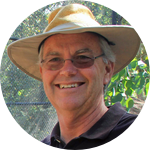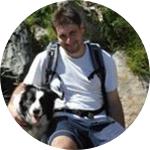About This Project
Reality modeling algorithms allow the automatic generation of 3D models from photographs. Traditionally, algorithms are developed for “pinhole images”, which are the sensors in smartphones and cameras.
Nowadays, new 360 degree cameras are available. I will develop a novel method for accurate 3D modeling with cheap 360 cameras, which capture the entire scene around the photographer in a single shot. Results will be shared on a website to give people the opportunity to create virtual 3D models.
Ask the Scientists
Join The DiscussionWhat is the context of this research?
Standard methods for image-based 3D modeling are based on traditional cameras with a limited field of view, which require a large number of photographs acquired following specific rules. The other solution is laser scanning, but scanning sensors are very expensive (> 50,000 $).
My idea is to work with affordable 360 cameras. The 360 camera can be pointed to any direction and the very large field of view reduces the number of photographs. The entire scene around the camera is acquired in a single shot. Starting from some images (at least 2) acquired from different points, a 3D model can be generated in an automatic way. I am currently working on this topic and more results can be found in my paper.
What is the significance of this project?
I teach students advanced 3D modeling techniques in my daily activity at the university. I know the importance of accurate 3D measurements in several practical applications also in different fields: architecture, engineering, geology, archeology, criminology, etc.
Recording shape and size is a fundamental requirement in many disciplines!
The challenge is to provide photographers (equipped with an affordable 360 camera!) a simple and accurate solution for rapid mapping, with also a direct connection to virtual reality. 3 low-cost cameras will be tested to validate the method for 3D modeling. I will provide specific software that does not require expensive workstation and simple guidelines to replicate the process
What are the goals of the project?
The aim is to provide tutorials and datasets on a website. First, I will provide simple reports about the results achieved in terms of costs and metric accuracy. Tutorials will contain guidelines on the image acquisition procedure and processing. Results will be published online at two levels:
(1) a basic level for people interested in the proposed method for their surveying application
(2) an advanced level for surveying specialists
Tests will be carried out using consolidated solutions: total station and laser scanning.
I started working on this topic 2 years ago but several new sensors are now available on the commercial market. This has opened new opportunities for a wider user community.
Budget
The money raised through Experiment.com will help cover these costs:
1) Buy 3 new 360 cameras: basic (100 $): intermediate (350 $): pro(950 $)
2) Create a reference dataset in our lab and test the 3 cameras using a dataset measured with a total station (200 $)
3) Create a reference dataset measured with a laser scanner to test the 3 cameras (600 $)
4) Setup a website to share the new tutorials, reports and datasets that will be developed in the project (400 $)
Endorsed by
 Project Timeline
Project Timeline
28 Feb 18: Purchase equipment, setup webpage, setup total station test site (lab)
31 Mar 18: Capture 360 images of lab test site and conduct data analysis, setup laser scanning test site (Grumello castle) and capture 360 images
30 Apr 18: Conduct 360 image analysis of laser scanning test site
31 May 18: Publish on website (1) tutorial for 360 image acquisition and processing, (2) reports on metric accuracy for the different cameras
Dec 13, 2017
Project Launched
Feb 28, 2018
Purchase equipment, setup webpage, setup total station test site (laboratory)
Mar 31, 2018
Capture 360 images of lab test site and conduct data analysis, setup laser scanning test site (Grumello castle) and capture 360 images
Apr 30, 2018
Conduct 360 image analysis of laser scanning test site
May 31, 2018
Publish on website (1) tutorial for 360 image acquisition and processing, (2) reports on metric accuracy for the different cameras
Meet the Team
Luigi Barazzetti
I received a PhD cum laude in Geomatics and Infrastructures at Polytechnic University of Milan. Since 2006 I have been directly concerned with the 3D modeling work from images and laser scans. My research activities are based around surveying, photogrammetry and computer vision with terrestrial, aerial and satellite images, remote sensing and vision metrology.
I have had numerous papers published at international level. I like to teach advanced tools for 3D modeling from digital images not only to expert surveyors, but also to people interested in accurate measurements from affordable tools (mainly digital cameras).
I have worked in several countries (Italy, Canada, Jordan, Bahrain, Belgium, UK, etc.) during my participation to different research projects. I have participated to numerous surveying activities with modern digital tools based on photogrammetry and laser scanning, and I have trained different specialists from different fields during capacity building projects.
For more details, please visit my personal page on our lab website
I believe that the technological progress achieved in the latest years has open new opportunities for advanced 3D modeling. Results can still be greatly improved by developing more efficient algorithms!
Lab Notes
Nothing posted yet.
Additional Information
I believe that more research work and tests and now essential to exploit the full potential of 360 cameras, which are not only formidable tools to capture our special memories, but also powerful solutions for 3D modeling and virtual reality.
Here is a video of our presentation at the international 3D Arch conference, Greece, 2017
Project Backers
- 3Backers
- 5%Funded
- $106Total Donations
- $35.33Average Donation


